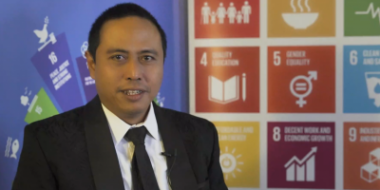A lower middle-income country since 2008, Indonesia has boosted living standards and increasingly more people have access to basic services. Remarkable steps in tackling social and economic challenges have been made. Yet, considerable challenges remain as Indonesia seeks to reduce poverty, eradicate corruption, ensure equal access to justice and protect human rights. Natural resource management is facing serious threats, and vulnerable groups living in remote regions have limited access to social services and legal aid. Conflicting laws and regulations on both the national and local level and a lack of capacity of, and coordination among, government institutions hinder Indonesia from realizing its full potential, while enhancing sustainable and inclusive growth.
Indonesia and the Netherlands have a long-shared history of cooperation in the field of rule of law. The common heritage of legal systems creates an opportunity for partnerships between Indonesian and Dutch justice sector institutions. Given the shared goals of improving access to justice through the rule of law, IDLO is working with the Embassy of the Kingdom of the Netherlands in Jakarta to administer the Indonesia-Netherlands Rule of Law Fund. This program aims to support the development of effective, accountable and inclusive justice sector institutions, and ensure equal access to justice in Indonesia.









